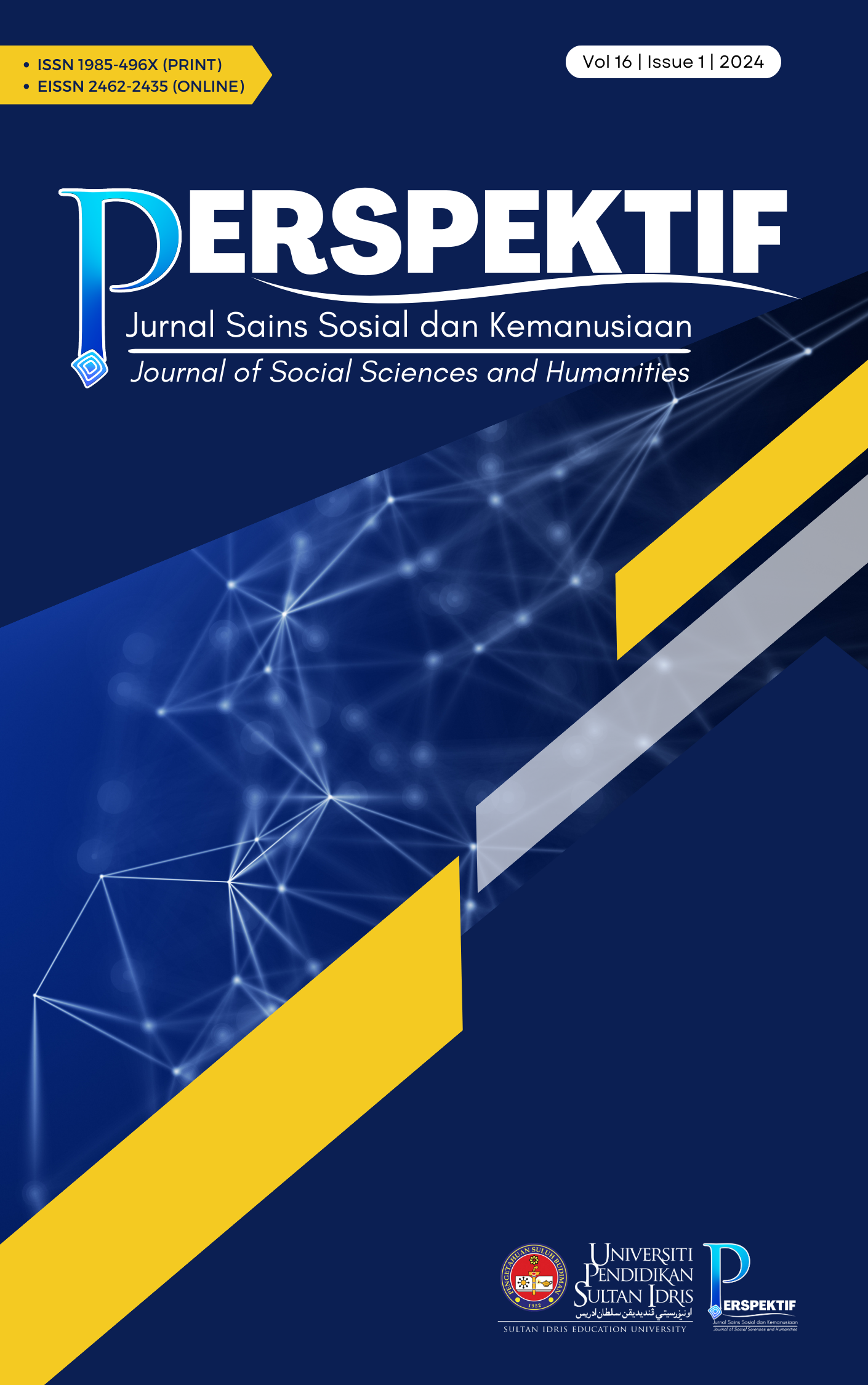A Professional Perspectives on Sex Education Towards Children with Disabilities: Addressing Social Exclusion
DOI:
https://doi.org/10.37134/perspektif.vol16.2.4.2024Keywords:
children with disabilities, sex education, professional perspectives, social exclusionAbstract
Sex education is the education related to human sexuality, human sexual anatomy, sexual emotions, and reproduction. Sexual education for disabled children had been taken lightly due to their growth limitation, thus, most of the society thought sexual emotion will not be developed for disabled children. This shows that there is still lack of awareness among the public regarding sex education towards disabled children. Therefore, in this study is initiated to study three objectives (i) To study level of knowledge on sexual health education towards children with disability; (ii) To identify available resources and factors influencing the adequacy of sexuality education among children with disabilities; and (iii) To analyse how sexuality education will help to reduce sexual crimes among children with disabilities. This study adopts a qualitative survey which structured interviews had been done to the respondents who are the professionals related to the disabled children. Based on the interviews that had been done with 12 respondents, it is have proved that the society still lacks the knowledge regarding sex education towards disabled children. There are also limited resources that influence the adequacy of this education. Besides, based on the finding, it had been identified that proper sex education will protect the disabled children from sexual crimes that might be happened to them. As this study is only limited from the view of professionals and it is recommended that future study can highlight the views from the disabled children and other groups of society.
Downloads
References
Ahmad, Y. (2018). Empirical evidence on child abuse in Malaysian context. UiTM Press.
Ang, C. T., & Lee, L. W. (2013). Sexuality education among secondary students with learning disabilities: Challenges and importance. Journal of Bitara 6(1), 53-62.
Azizah Jaafar, Chan Siew Lee, & Nor Azan Mat Zin. (2012). Pembangunan dan penilaian kepenggunaan perisian kursus pendidikan seksualiti Malaysia. Jurnal Teknologi Maklumat dan Multimedia Asia-Pasifik, 1(1), 1–20.
Campbell, M., Löfgren-Mårtenson, C., & Martino, A. S. (2020). Cripping sex education: Editorial introduction. Sex Education, 20(4), 361–365.
Dwi Karina Ariadni, Y., Yayi Suryo, P., & Sumarni, D. (2017). Parents’ perception of having children with intellectual disability providing sex education. Indonesian Nursing Journal of Education and Clinic (INJEC), 164–169.
Frawley, P. (2023). Access to sexual rights for all people with disabilities: The need to see and include the experiences of people with intellectual disability. Archives of Sexual Behavior, 52(8), 3271–3276. https://doi.org/10.1007/s10508-023-02577-8
Frontiers in Education. (2024). Sexuality Education that Prioritizes Sexual Well-Being: Initiatives and Impact. Retrieved from https://www.frontiersin.org.
Gil-Llario, M. D., Morell-Mengual, V., Ballester-Arnal, R., & Díaz-Rodríguez, I. (2018). The experience of sexuality in adults with intellectual disabilities. Journal of Intellectual Disability Research, 62(1), 72–80. https://doi.org/10.1111/jir.12455.
Johan, S. K., Yassin, M. H. M., & Tahar, M. M. (2019). Knowledge and practice of sexual education teachers of special needs students. In Affirmation of the identity of special education science to support the implementation of inclusive education (p. 86).
Kristien, M., & Brockschmidt, L. (2021). Barriers to sexuality education for children and young people with disabilities in the WHO European region: A scoping review. Sex Education, 21(6), 674–692. https://doi.org/10.1080/14681811.2020.1851181
McCann, E., Marsh, L., & Brown, M. (2019). People with intellectual disabilities, relationship and sex education programmes: A systematic review. Health Education Journal, 78(8), 885–900. https://doi.org/10.1177/0017896919856047.
McDaniels, B., & Fleming, A. (2016). Sexuality education and intellectual disability: Time to address the challenge. Sexuality and Disability, 34(3), 215–225. https://doi.org/10.1007/s11195-016-9427-y.
Mutakhir. (2019, February 22). Pendidikan seks sukatan pelajaran penting. Harian Metro. https://www.hmetro.com.my/mutakhir/2019/02/426006/pendidikan-seks-sukatan-pelajaran-penting
Nelson, B., Odberg Pettersson, K., & Emmelin, M. (2020). Experiences of teaching sexual and reproductive health to students with intellectual disabilities. Sex Education, 20(4), 398–412. https://doi.org/10.1080/14681811.2019.1707652.
Treacy, A., Taylor, S., & Abernathy, T. (2017). Sexual health education for individuals with disabilities: A call to action. American Journal of Sexuality Education, 13(1), 65–93. https://doi.org/10.1080/15546128.2017.1399492.
Travers, J., Tincani, M., Whitby, P., & Boutot, A. E. (2014). Alignment of sexuality education with self-determination for people with significant disabilities: A review of research and future directions. Education and Training in Autism and Developmental Disabilities, 49(2), 232–247.
Schaafsma, D., Kok, G., Stoffelen, J. M. T., & Curfs, L. M. G. (2014). Identifying the important factors associated with teaching sex education to people with intellectual disability: A cross-sectional survey among paid care staff. Journal of Intellectual and Developmental Disabilities, 39(2), 157–166. https://doi.org/10.3109/13668250.2014.899566.
Sharma, G. (2017). Pros and cons of different sampling techniques. International Journal of Applied Research, 3(7), 749–752.
Smith, T. E., Gartin, B., & Murdick, N. L. (2012). Strategies for teaching self-determination skills with adolescents with disabilities. In T. E. Smith, B. Gartin, & N. L. Murdick (Eds.), Including adolescents with disabilities in general education classrooms (pp. 45–58). Pearson.
Yin, R. K. (2009). Case study research: Design and methods (4th ed.). SAGE Publications, Inc.
Zainudin, T. N., & Rahim, A. A. (2013). Child patient and consent to medical treatment in Malaysia: A legal perspective. Journal of Global Peace and Conflict, 1(1), 41-48.
Zatul Iffah, Z. (2019, November 28). Dituduh rogol anak saudara OKU. Harian Metro. https://www.hmetro.com.my/mutakhir/2019/11/521507/dituduh-rogol-anak-saudara-oku.
Downloads
Published
How to Cite
Issue
Section
License
Copyright (c) 2024 Khairiyah Md. Shahid, Aidda Syafira Md Rasid , Zalatulnurain Hairulazaman , Marni Ghazali, Devika Krishnan

This work is licensed under a Creative Commons Attribution-NonCommercial-ShareAlike 4.0 International License.





